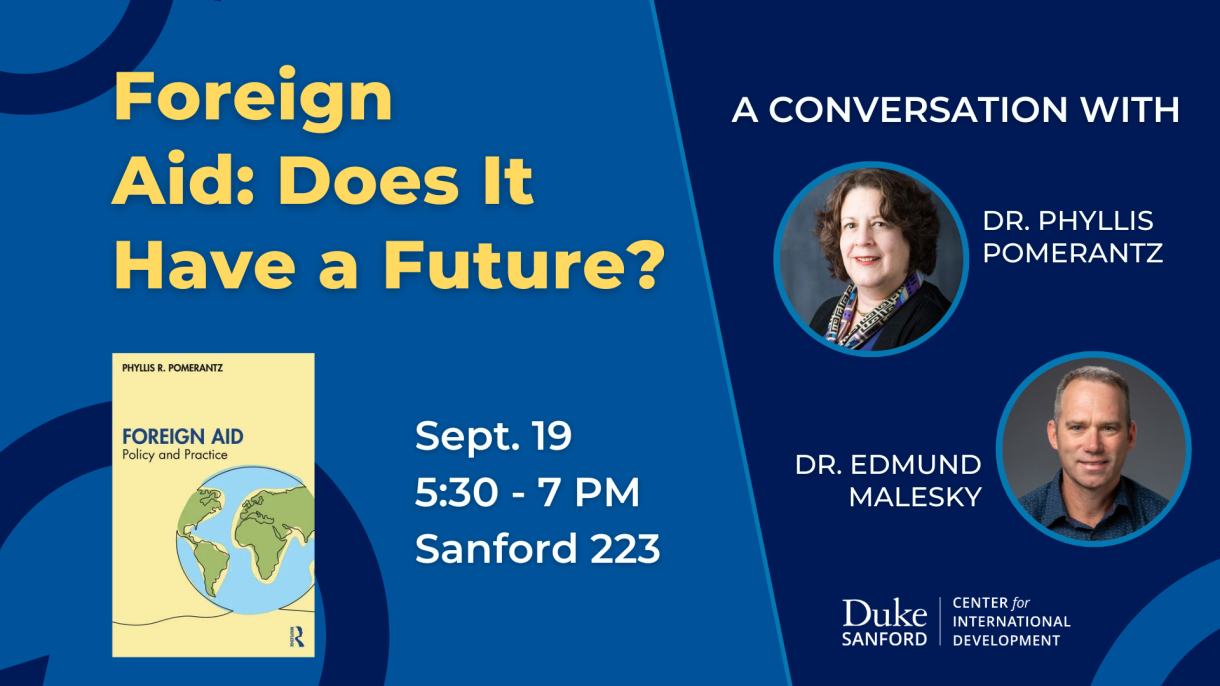
[Event] Foreign Aid: Does It Have a Future?
A conversation with Phyllis Pomerantz, professor emerita of the practice and author of “Foreign Aid: Policy and Practice,” and Edmund Malesky, director of the Duke Center for International Development.
Phyllis Pomerantz, professor emerita of the practice of public policy, will discuss the future of foreign aid and her new book, “Foreign Aid: Policy and Practice,” during a fireside chat hosted by the Duke Center for International Development on Tuesday, Sept. 19 at 5:30 p.m. in Sanford 223.
The conversation, moderated by Edmund Malesky, director of the Duke Center for International Development, is based on Pomerantz’s book, which Bill Easterly, noted NYU professor, author and international development practitioner, has called “required reading for aid practitioners and those who care about world poverty." The conversation will explore whether foreign aid practices have improved over time and will focus on current issues and controversies surrounding aid given by the U.S., China, EU members and others.
Published in July 2023 by Routledge, the book provides readers with a comprehensive summary of the background, actors, core principles and policies, and intended (and unintended) outcomes of foreign aid, followed by an informed and balanced treatment of the key controversies and trends in aid today. Drawing on more than 25 years of experience in development practice and 16 years at DCID, Pomerantz reflects on recent efforts to accelerate aid’s impact and offers perspective on the future of aid.
The event, open to the public, will include time for questions from the audience and an opportunity to purchase Pomerantz’s book.
About the author
Phyllis Pomerantz is a professor emerita of the practice of public policy at Duke University, where she has taught Master of International Development Policy students for more than 15 years. Before academia, she had a long career at the World Bank, including managerial appointments in agriculture, rural development, and infrastructure, and as a country director and the World Bank’s first chief learning officer.
